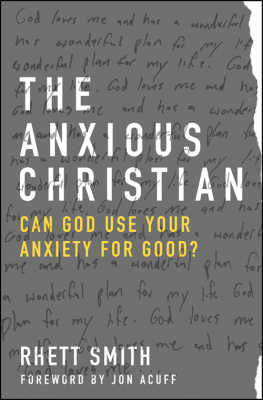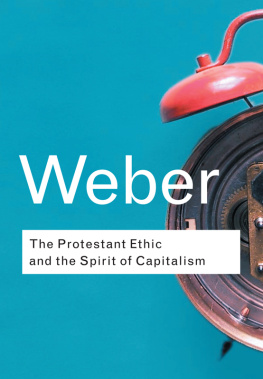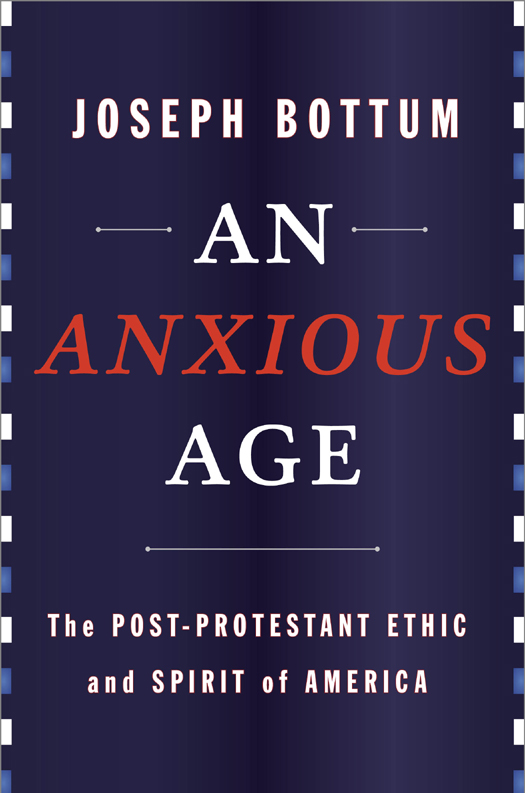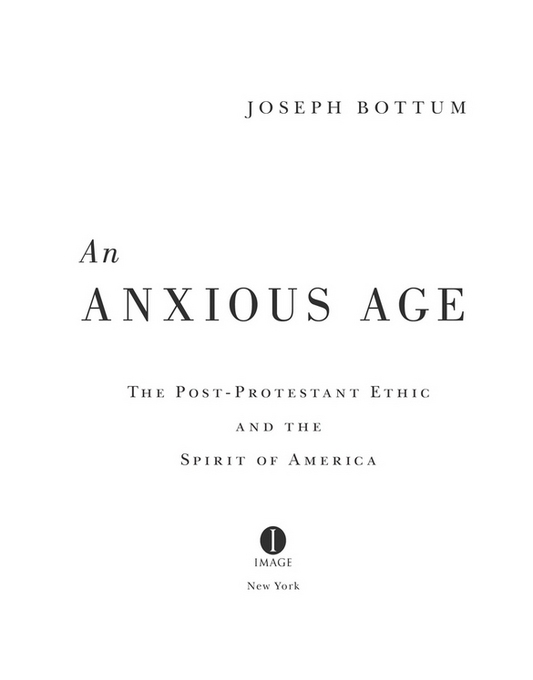Joseph Bottum - An anxious age : the Post-Protestant ethic and spirit of America
Here you can read online Joseph Bottum - An anxious age : the Post-Protestant ethic and spirit of America full text of the book (entire story) in english for free. Download pdf and epub, get meaning, cover and reviews about this ebook. City: United States, United States, year: 2014, publisher: The Doubleday Religious Publishing Group;Image Books, genre: Art. Description of the work, (preface) as well as reviews are available. Best literature library LitArk.com created for fans of good reading and offers a wide selection of genres:
Romance novel
Science fiction
Adventure
Detective
Science
History
Home and family
Prose
Art
Politics
Computer
Non-fiction
Religion
Business
Children
Humor
Choose a favorite category and find really read worthwhile books. Enjoy immersion in the world of imagination, feel the emotions of the characters or learn something new for yourself, make an fascinating discovery.

- Book:An anxious age : the Post-Protestant ethic and spirit of America
- Author:
- Publisher:The Doubleday Religious Publishing Group;Image Books
- Genre:
- Year:2014
- City:United States, United States
- Rating:5 / 5
- Favourites:Add to favourites
- Your mark:
An anxious age : the Post-Protestant ethic and spirit of America: summary, description and annotation
We offer to read an annotation, description, summary or preface (depends on what the author of the book "An anxious age : the Post-Protestant ethic and spirit of America" wrote himself). If you haven't found the necessary information about the book — write in the comments, we will try to find it.
Or so Joseph Bottum argues in An Anxious Age, an account of modern America as a morality tale, formed by its spiritual disturbances. And the cause, he claims, is the most significant and least noticed historical fact of the last fifty years: the collapse of the Mainline Protestant churches that were the source of social consensus and cultural unity. Our dangerous spiritual anxieties, broken loose from the churches that once contained them, now madden everything in American life.
Updating The Protestant Ethic and the Spirit of Capitalism, Max Webers sociological classic, An Anxious Age undertakes two case studies in contemporary social class, adrift in a nation without the religious understandings that gave it meaning. Looking at the college-educated elite he calls The Poster Children, Bottum sees the post-Protestant heirs of the old Mainline Protestant domination of culture: dutiful descendants who claim the high social position of their Christian ancestors even while they reject their ancestors Christianity. Turning to The Swallows of Capistrano, the Catholics formed by the pontificate of John Paul II, Bottum evaluates the early victories--and later defeats--of the attempt to substitute Catholicism for the dying Mainline voice in public life.
Sweeping across American intellectual and cultural history, An Anxious Age traces the course of national religion and warns about the strange angels and even stranger demons with which we now wrestle. Insightful and contrarian, wise and unexpected, An Anxious Age ranks among the great modern accounts of American culture.
Praise for Joseph Bottum and An Anxious Age:
An Anxious Age is bound to be viewed as a classic of American sociology--not only because of its vast knowledge of historical facts and personalities, its depth and multiple layers of meaning, but also because of its literary elegance and imaginative structure. Bottum offers a wholly new way of understanding religion in public life today. The magical trick Bottum works when he asks Where did the Protestant ethic go? is nearly breathtaking. --Michael Novak
A poet and critic and essayist with a sideline in history and philosophy, Joseph Bottum is attempting to wrench the true complexity of faith back from the complexity-destroying context of contemporary political debates. --New York Times
Joseph Bottum is the poetic voice of modern Catholic intellectual life. His work . . . shaped the minds of a generation. --National Review
One of Americas most gifted writers, with a perfect ear and a matchless style. --Andrew Ferguson
A fierce critical intelligence and a terrific sense of the comedy of errors we call the human condition. --Paul Mariani
Joseph Bottum: author's other books
Who wrote An anxious age : the Post-Protestant ethic and spirit of America? Find out the surname, the name of the author of the book and a list of all author's works by series.





